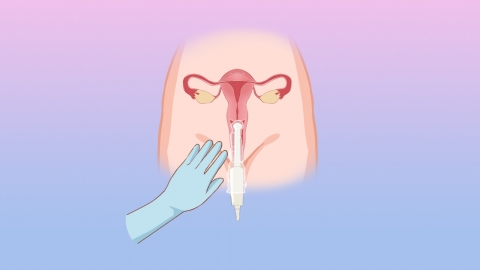What is the best treatment method for pelvic effusion?
Generally, there is no such thing as "the best treatment for pelvic effusion." Pelvic effusion may be caused by factors such as menstruation, ovulation, bacterial vaginosis complicated by pelvic infection, endometriosis, or pelvic inflammatory disease. Improvement can be achieved through general care, medication, and other measures. Prompt medical consultation and following the doctor's instructions for treatment are essential. The details are as follows:

1. Menstrual period: During menstruation, due to hormonal changes in the body, the pelvic mucosa may become congested. Engaging in strenuous activity at this time might cause retrograde menstrual flow into the pelvic cavity, resulting in a small amount of pelvic effusion. Usually, no special treatment is required. It is recommended to avoid strenuous exercise during menstruation and ensure adequate rest to facilitate absorption of the fluid.
2. Ovulation period: During ovulation, the rupture of mature follicles releases follicular fluid, which may accumulate in the pelvic cavity, causing a small amount of pelvic effusion. This is a normal physiological phenomenon that generally does not require specific treatment, as the fluid is usually absorbed spontaneously.
3. Bacterial Vaginosis Complicated by Pelvic Infection: Bacterial vaginosis results from an imbalance in the vaginal flora, with common pathogens including Gardnerella and anaerobic bacteria. When these pathogens multiply in the vagina, they may ascend to the pelvic cavity, causing pelvic inflammatory disease and resulting in pelvic effusion accompanied by increased vaginal discharge. Follow medical advice to use antibiotics such as levofloxacin hydrochloride capsules, norfloxacin capsules, and metronidazole tablets to combat infection and inhibit bacterial growth.
4. Endometriosis: Endometriosis refers to the presence of endometrial tissue outside the uterine cavity. Under the influence of sex hormones, ectopic endometrial tissue may undergo cyclic bleeding and inflammatory reactions, leading to pelvic inflammation and effusion, often manifesting as dysmenorrhea. Under medical guidance, medications such as ibuprofen sustained-release capsules, danazol capsules, and norethisterone tablets may be used for pain relief and hormonal regulation.
5. Pelvic Inflammatory Disease (PID): Pelvic inflammatory disease is commonly caused by postoperative infections following procedures such as induced abortion or intrauterine device placement. Sexual activity during menstruation and reduced immunity after childbirth may also lead to pelvic inflammation. Inflammation can prevent the body from absorbing serous fluid, which may spread to the pelvic cavity and form effusion, often accompanied by fever. Follow medical advice to use medications such as Fuyankang capsules, Gongxuening capsules, and Gynecological Qianjin tablets to promote blood circulation, remove blood stasis, and relieve pain.
During treatment, it is important to adjust lifestyle habits and dietary patterns to promote recovery.





